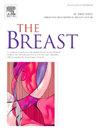Opportunities to improve the environmental sustainability of breast cancer care: A scoping review
IF 7.9
2区 医学
Q1 OBSTETRICS & GYNECOLOGY
引用次数: 0
Abstract
Background
Breast cancer is the most common cancer affecting women and is second in female cancer-related mortality. The treatment of breast cancer is multidisciplinary; it involves multiple specialists and allied health professionals and thus can be resource intensive. The environmental impact of breast cancer care has been poorly defined. The aim of this scoping review was to characterize the environmental effects of multidisciplinary breast cancer care.
Methods
MEDLINE, MEDLINE In-Process/ePubs, Embase, Cochrane Central Register of Controlled Trials, and Cochrane Database of Systematic Reviews were searched using terms related to breast cancer and environmental impact. The search strategy was run from inception to October 11, 2023, and updated on July 17, 2025. Peer-reviewed records that discussed the environmental impact of breast cancer care practices were included.
Results
The search identified 6772 articles from which 36 were included for review. We synthesized the literature discussing environmental effects of all aspects of breast cancer care, including screening, diagnosis, surgery, radiation, and systemic therapies. Key findings include the use of mobile breast screening clinics to reduce carbon footprint associated with travel, strategies for optimizing resource consumption in the operating room, and environmentally sustainable approaches for radiotherapy and breast cancer drug administration.
Conclusion
This review summarizes the current literature discussing the environmental impact of breast cancer care. Findings from this review will identify gaps and inform recommendations for transforming our health care system into one that is sustainable and capable of offering gold standard patient-centred care to future generations of patients with breast cancer.
改善乳腺癌护理环境可持续性的机会:范围综述。
背景:乳腺癌是影响女性的最常见的癌症,在女性癌症相关死亡率中排名第二。乳腺癌的治疗是多学科的;它涉及多名专家和联合卫生专业人员,因此可能是资源密集型的。乳腺癌治疗对环境的影响一直没有明确的定义。这一范围审查的目的是表征多学科乳腺癌护理的环境影响。方法:使用与乳腺癌和环境影响相关的术语检索MEDLINE、MEDLINE In-Process/ epub、Embase、Cochrane中央对照试验注册库和Cochrane系统评价数据库。搜索策略从初始运行到2023年10月11日,并于2025年7月17日更新。讨论乳腺癌护理实践对环境影响的同行评议记录也包括在内。结果:检索到6772篇文章,其中36篇纳入综述。我们综合了讨论乳腺癌护理各个方面的环境影响的文献,包括筛查、诊断、手术、放疗和全身治疗。主要发现包括使用流动乳房筛查诊所减少与旅行相关的碳足迹,优化手术室资源消耗的策略,以及环境可持续的放射治疗和乳腺癌药物管理方法。结论:本文综述了目前讨论乳腺癌护理对环境影响的文献。这项审查的结果将确定差距,并为将我们的卫生保健系统转变为一个可持续的,能够为未来几代乳腺癌患者提供以患者为中心的黄金标准的护理提供建议。
本文章由计算机程序翻译,如有差异,请以英文原文为准。
求助全文
约1分钟内获得全文
求助全文
来源期刊

Breast
医学-妇产科学
CiteScore
8.70
自引率
2.60%
发文量
165
审稿时长
59 days
期刊介绍:
The Breast is an international, multidisciplinary journal for researchers and clinicians, which focuses on translational and clinical research for the advancement of breast cancer prevention, diagnosis and treatment of all stages.
 求助内容:
求助内容: 应助结果提醒方式:
应助结果提醒方式:


